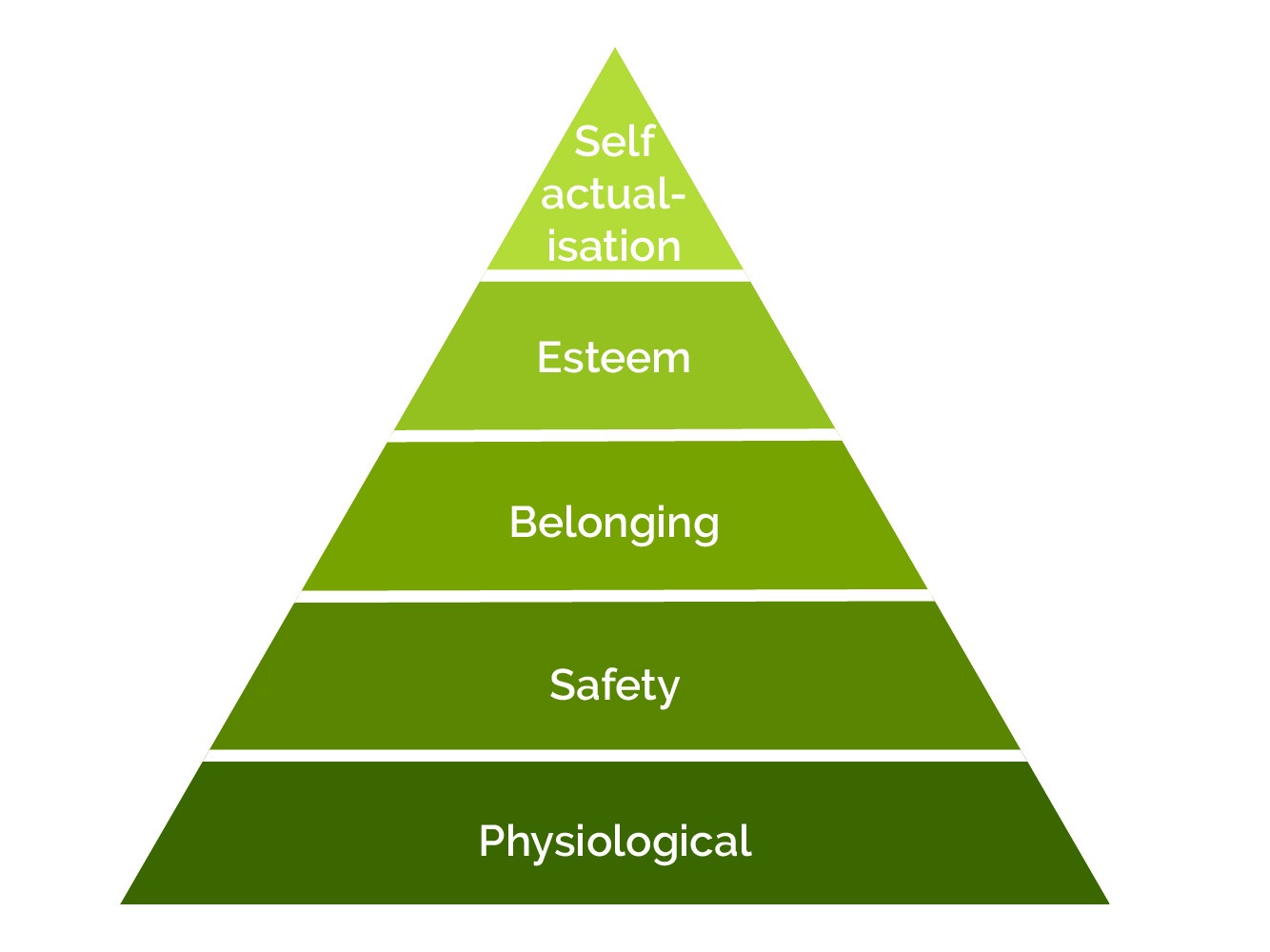
The standards of Corporate Social Responsibility (CSR) we see from companies today keep getting higher, and it’s something we should all be thinking about more and more. But what other benefits does CSR have in your organisation? What if we told you that in addition to positive environmental, social and brand impacts, it can engage your employees and empower them to discover a better version of themselves?
 CSR has been proven many times to improve employee engagement, but how? Maslow’s Hierarchy is often applied to HR, but have you considered that you could apply the top level of the pyramid to your employees? That’s right, people can achieve self-actualisation in their job. How, you ask? Through the power of CSR.
CSR has been proven many times to improve employee engagement, but how? Maslow’s Hierarchy is often applied to HR, but have you considered that you could apply the top level of the pyramid to your employees? That’s right, people can achieve self-actualisation in their job. How, you ask? Through the power of CSR.
Most CSR schemes engage level 4 of Maslow’s Hierarchy among employees. These are usually top-down schemes, where management introduces policies and the company implements them. Employees usually like to be involved in these schemes because they feel good about themselves; it raises their esteem.
But how do you take it further? How do you engage that top level of the pyramid; self-actualisation?
Studies have shown that the most effective way of improving CSR is to embed it deeply in your organisation’s culture. Doing this not only improves your CSR, it also boosts employee engagement. How? By engaging the top level of Maslow’s Hierarchy.
The Bottom-up Approach
This approach to CSR is all about empowerment. It’s about management simply enabling their employees to do great work; making sure they have the ability to make an impact on society and the environment. This empowers employees to become better versions of themselves; to reach the highest level of Maslow’s Hierarchy; self-actualisation.
To make this work, here are some things to think about.
Authenticity
For staff to be fully engaged, they need to clearly see that it is a deep part of the company’s culture; embedded in the core values and practised by everybody in the company, especially the management. It can’t just be a strategy bolted on to the company with no real feeling behind it; it must be genuine and authentic.
Personal CSR
Employees need to be able to do the work which they feel is most impactful, and which they feel is building a better version of themselves. Not work which the company management feels will have the greatest impact on brand image. In other words, management needs to make sure that employees are encouraged to participate, and are able to do the work they feel is valuable.
So, to re-cap
The bottom-up approach needs to be entirely focused on the employee, not the company. It needs to be integrated into their role, not extra-role activity, and it needs to allow them to be themselves. It should not merely be a strategy to improve brand image, or a top-down scheme which doesn’t fully engage staff.
We can guess what you’re thinking; won’t this negatively affect Corporate Social Responsibility? No. The research has proved that this bottom-up approach improves CSR, and improves employee engagement.
If employees can employ more of themselves in their role, they will be more engaged, and using CSR is a great way allow employees to bring more of themselves to work; to empower them to discover better versions of themselves, while at the same time having a greater impact on the environment and society, and improving your brand image.
Keen to learn more about how we can help improve your brand’s CSR? Fill in the form below to contact us.
